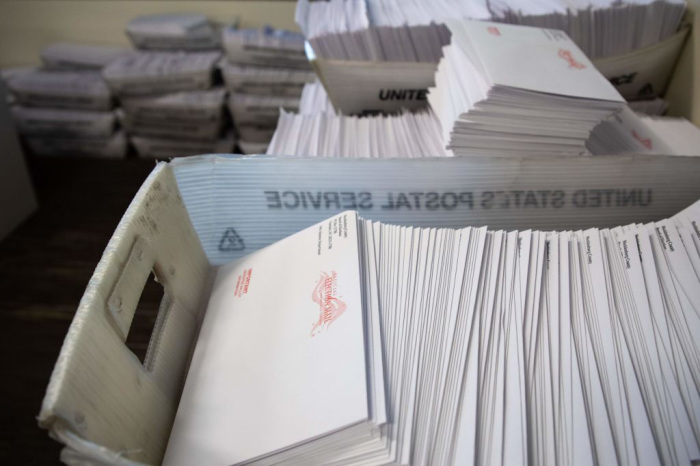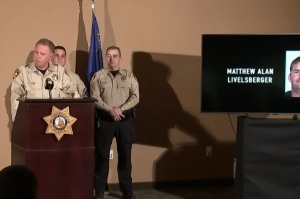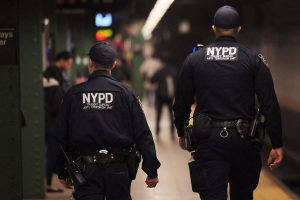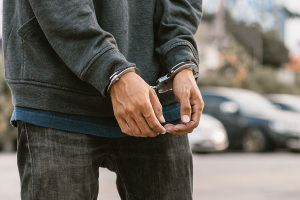Nearly 12,000 non-US citizens may have registered to vote in Texas: audit

An audit conducted by the Secretary of State’s office in Texas has revealed that while more than 11,000 non-citizens were possibly registered to vote at the time of the 2020 presidential election, votes cast by non-citizens did not affect the outcome of the election.
The Phase 1 progress report of the audit, released Friday, detailed the results of an analysis and investigation of the presidential election results in four of the state’s most populous counties that cast 35% of the total votes: Collin, Dallas, Harris and Tarrant. According to CNN, then-President Donald Trump won the state by a margin of more than 500,000 votes over Democratic presidential nominee Joe Biden in the 2020 presidential election out of 11.3 million votes cast.
However, concerns about voter irregularities prompted the Secretary of State’s office to announce a “full forensic audit” of the results in those counties on Sept. 23.
“What we’re trying to do is make sure that there’s a little more confidence in the system, in the election integrity," Secretary of State John Scott told NBC's Dallas-Fort Worth affiliate last month. "And I think this is one of the hopes … of the audit is to show folks that it is very safe, it is secure, your vote does count when you cast it. And where we find issues, we’re going to address those issues.”
Specifically, during the first phase of the audit, the Secretary of State’s office worked to “review available data and documents concerning the security and accuracy of voting systems used in each of the four counties, as well as the counties’ work to maintain the accuracy of their respective lists of registered voters.” Regarding the accuracy of the counties’ respective list of registered voters, the progress report detailed their efforts to remove dead and non-citizen voters from the voter rolls.
Texas law requires a “quarterly comparison of the statewide voter registration list to identify all potential deceased voters.” The Secretary of State’s office implemented a “comparative analysis of the statewide system to records provided by the Local Registrars of Death, Clerks of the Court, the Bureau of Vital Statistics, the Electronic Registration Information Center (ERIC), and the Social Security Administration.”
Any “strong” matches, where the last name, date of birth and Social Security number of a person gathered from one of the aforementioned sources matches exactly with the data of someone on the state’s voter registration list, are canceled by the state system. “Weak” matches “require an additional review process to be conducted by each individual county voter registrar.”
In the four counties at the center of the audit, a total of 47,521 strong matches have been canceled by the state since November 2020, while an additional 57,684 weak matches were canceled by the individual counties. More than 100,000 voter registrations altogether have been canceled in the four counties in that time period.
While the report primarily focuses on the four large counties, it also contains data about efforts to remove deceased and non-citizen voters from the voter rolls throughout the state as a whole. Statewide, 190,227 strong matches have been canceled by the state.
The number of strong match cancellations, combined with the number of weak matches canceled at the county level adds up to a total of 224,585 voter registrations of deceased voters canceled. While more than 30,000 additional “weak” matches were identified, their registrations were not canceled.
A statewide comparison of citizenship data compiled by the Texas Department of Public Services to the Texas voter registration list found 11,737 “possible non-U.S. citizen voter records” since September 2021. A total of 2,737 of those voter registrations have been canceled due to either “confirmation of non-U.S. citizenship by the county” or an individual’s “failure to respond to a notice from the county voter registrar requesting documentation of proof of citizenship.”
A total of 3,063 possible non-citizen voter registrations have been identified in Harris County, along with 1,385 in Dallas County, 708 in Tarrant County and 327 in Collin County. None of the potential non-U.S. citizen voter records in Collin County and Harris County resulted in a cancellation due to confirmed non-citizenship, while five such cancellations took place in Dallas County along with one in Tarrant County.
The report revealed that “the SOS, in coordination with county voter registrars, continues to verify the number of non-U.S. citizens registered to vote statewide to identify those that may have voted in the November 2020 election.” Additionally, the report indicated that “all records with voting history suggesting the potential of an illegal vote cast will be referred to the Office of Attorney General (OAG) for further investigation.”
The ability of the Texas Attorney General to investigate and prosecute electoral fraud has become the subject of litigation. The Texas Court of Criminal Appeals’ recent decision to “strip the Legislature of its power to assign the Office of Attorney General (OAG) authority to prosecute criminal election law violations” was met with condemnation from Texas Attorney General Ken Paxton, a Republican.
“The Court’s decision to suddenly remove our authority to prosecute election fraud can only empower dishonest campaigns to silence voters across the state,” Paxton said in a statement shared with The Christian Post. “This decision is not only wrong on legal grounds, but it has the effect of giving district and county attorneys virtually unlimited discretion not to bring election law prosecutions.”
Paxton also pushed back on the court’s conclusion that allowing the Office of the Attorney General to investigate and prosecute election fraud runs afoul of the state constitution’s provision for separation of powers.
“Last year’s election cycle shows us that officials in our most problematic counties will simply let election fraud run rampant. I will continue to oppose this decision that diminishes our democracy and misconstrues the Texas Constitution,” he added.
Ryan Foley is a reporter for The Christian Post. He can be reached at: ryan.foley@christianpost.com





























